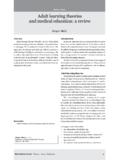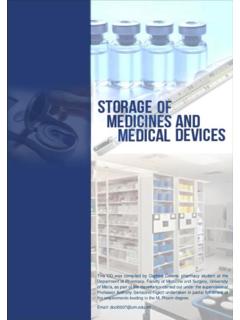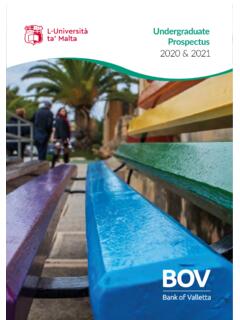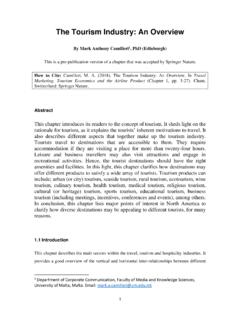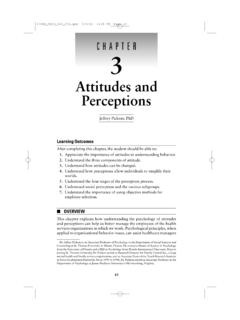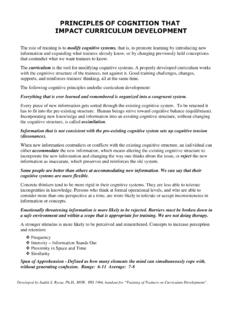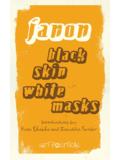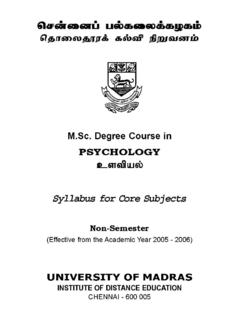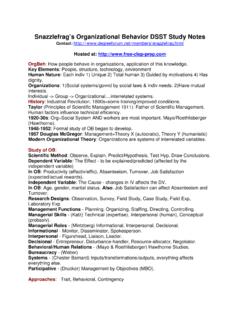Transcription of Review Article Adult learning theories and medical ...
1 Malta medical Journal Volume 21 Issue 01 March 2009 J rgen AbelaReview ArticleAdult learning theories and medical education : a reviewAbstractAdult learning theories describe ways in which adults assimilate knowledge, skills and attitudes. One popular theory is andragogy. This is analysed in detail in this Review . The importance of extrinsic motivation and reflective practice in Adult learning is highlighted, particularly since andragogy fails to address adequately these issues. Transformative learning is put forward as an alternative concept. Using the three recognised domains of knowledge, skills and attitudes, ways of applying these theoretical concepts in medical education are subsequently discussed.
2 IntroductionIn the past, there has been an assumption that if a person knows very well the subject, then, he will be able to teach it. However the complexity involved in practising medicine must be tackled with appropriate educational strategies in the training and education of undergraduate and postgraduate students. In fact, training teachers in educational techniques translates in better student learning The aim of this Review is to present and analyse andragogy in the broader context of Adult learning theories . Ways on how to apply educational theories will be put forward, with the ultimate aim being to foster medical competence.
3 Adult learning theoriesGiven that in the medical context most education involves adults , it is logical to focus on Adult learning theories . There are many Adult learning theories , which can be grouped into five main classes. These include Instrumental learning , self-directed learning , experiential learning , perspective transformation and situated Of these, self-directed learning particularly focuses on the individual learner as primary focus. Prominent amongst these self-directed theories is andragogy. The term andragogy (andra meaning man ; agogos meaning learning ) was first used by Alexander Kapp in 1833 to describe the educational theory of the Greek philosopher Plato.
4 He used it to refer to the normal process by which adults engage in continuing education . In the 20th century, various respected intellectuals, such as John Dewey, Eduard Lindeman, and Martha Anderson pursued theories of andragogy, but were largely ignored in the US. Things changes in the 1980 s, with the work of Malcolm Knowles who championed this theory and further elaborated the Andragogy assumes that adults : are independent and self directing, have (various degrees of) experience integrate learning to the demand of their everyday life are more interested in immediate problem centred approaches and are motivated more by internal than external drives.
5 KeywordsAdult learning , medical education , reflective practiceJ rgen Abela MSc, MRCGPD epartment of Primary Health Care, 2 Malta medical Journal Volume 21 Issue 01 March 2009 Another characteristic deemed to be relevant to Adult learning environments, is the importance of mutual respect between teacher and learner and also amongst the learners themselves. Respect is important since it is a catalyst for a safe educational Unfortunately, reflection is left out of Knowles concept of Adult learning , despite being an important component of Adult learning ,6 In fact, reflection is the second of the four steps in Kolb s learning In addition, the importance of reflection can be appreciated even more when one considers it to be an important difference between Adult learning (andragogy) and child learning (pedagogy) theories .
6 Finally, reflection can be seen to enhance Adult learning by increasing motivation to is another important pillar on which Adult learning is built. There are two major groups of theories describing motivation: content theories : these describe what motivates people, and process theories : these describe how people are One of the most popular of the content theories is Maslow s Hierarchy of The hierarchy moves from the most basic needs, such as physical needs and security culminating in self-realization (Figure 1). The importance of a safe educational environment cannot be overstated in the successful progression of the learner through the hierarchy of needs as described by Maslow.
7 Thus the importance of respect as stated , Maslow s model may be seen to be too rigid. In addition, an individual may be satisfied and unsatisfied with various needs simultaneously throughout his learning trajectory. It can thus be seen to be inadequate. A more appealing content theory is the one put forward by Clayton Alderfer, who describes and summarises motivation in three needs, ERG:9 Existence this is more or less equivalent to Maslow s safety and physical well being steps Relatedness stresses the importance of interpersonal and social relationships Growth intrinsic individual desire for personal growthProcess theories of motivation, on the other hand, are based on the idea that certain behaviours are produced by particular stimuli.
8 One such theory is the Expectancy Theory which states that motivation depends on two perceptions:111. an expectation that an outcome will bring the desired rewards2. the required performance is within the capability of the andragogy, Knowles states that Adult learners are self (intrinsically) He fails to mention extrinsic motivation and especially, the role of the teacher as major source of motivation. In fact, as Peyton9 points out, most Adult learners require the motivation provided by teachers for effective learning to take place. Not all Adult learners are equally intrinsically motivated, and this further highlights the inadequacy of andragogy with respect to motivation.
9 In fact, there necessarily arises the need of a mix of learning strategies, ranging from teacher-directed to student-directed This implies that there needs to be a match (Figure 2) between the learner and the teaching styles But how does one strike a match between learner stage and teacher style? Certainly, this involves an amount of flexibility on the part of the teacher. The most important step to clinch such dynamic relationship is to carry out a needs-assessment of the student/trainees involved. Without such needs assessment, teaching would be tantamount to treatment without a diagnosis. For example, whereas in the first clinical attachments, students would be dependent on the teacher to show them how to take a history, during the subsequent years, the learning strategies should deal with examination skills, going on further along the months to discussing the differential diagnosis and treatment of the patient s symptoms.
10 This shift in teaching stages will hopefully be matched by the progression of the learning stages Physiological NeedsHunger, ThirstSafety NeedsSecurity, ProtectionSocial NeedsSense of belonging, LoveEsteem NeedsSelf-esteem, recognition, statusSelf Actual-isationFigure 1: Maslow s Hierarchy of Needs which drive motivationMalta medical Journal Volume 21 Issue 01 March 2009 Figure 2: Matching learner stages to style14 MatchMatchMatchMatchSalesperson, motivatorFacilitatorDelegatorDependent LearnerInterested LearnerInvolved LearnerSelf-directedLearnerLearner StagesTeacher StylesMatchNear MatchMismatchAuthority,expertSevere MismatchKey:coupled with the learner getting more involved (motivated) in the process.


